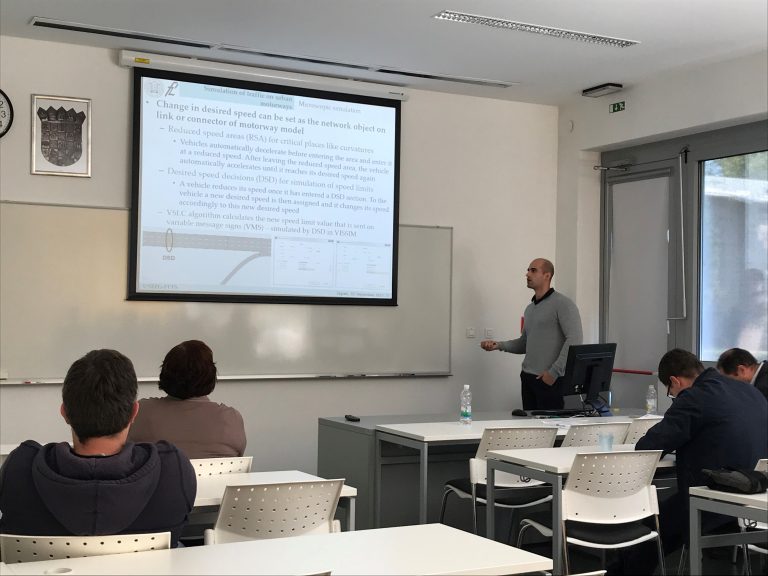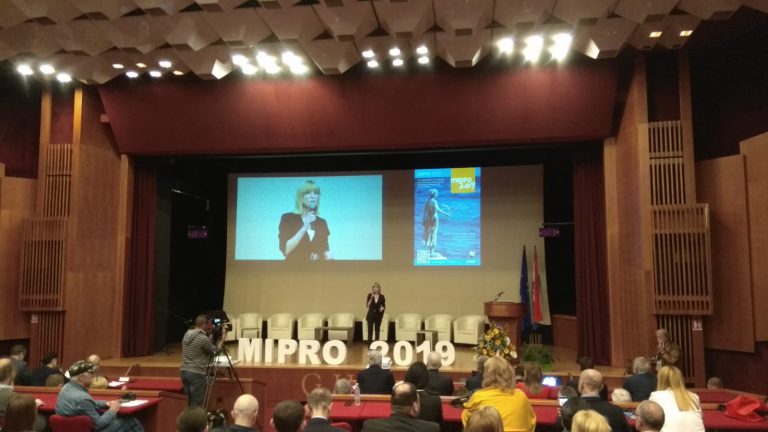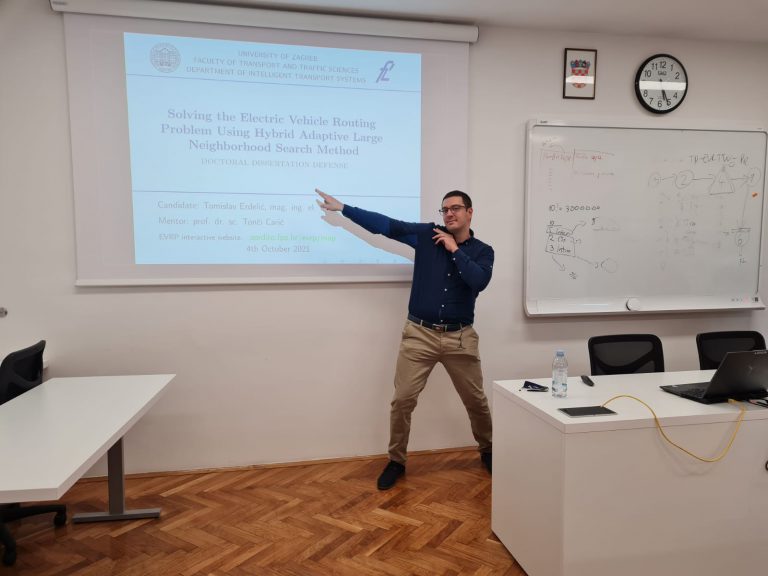Poziv na predavanje: „Systematic Testing for Adaptive Systems: Data Science testing Machine Learning an Outlook“
Fakultet prometnih znanosti u suradnji sa „Znanstvenim centrom izvrsnosti za znanost u podatcima i kooperativne sustave“ te pripadnim projektom „Napredne metode i tehnologije u znanosti o podatcima i kooperativnim sustavima (DATACROSS)“ i udrugom „ITS Hrvatska“ pozivaju Vas na predavanje:”Systematic Testing for Adaptive Systems: Data Science testing Machine Learning an Outlook” koje će održati profesor René Schumann, Institute of Information Systems, University of Applied Sciences Western Switzerland (HES-SO Valais/Wallis), Švicarska u četvrtak, 04. srpnja 2019. godine u dvorani D1 na Fakultetu prometnih znanosti Sveučilište u Zagrebu, Vukelićeva ulica 4 s početkom u 13:00 h.
Predavanje će biti na engleskom jeziku. Predviđeno trajanje s raspravom i druženjem nakon predavanja je 90 minuta te je otvoreno za sve zainteresirane, a posebice studente.
Više o predavanju i predavaču pročitajte u nastavku obavijesti.
Abstract: In this talk I will introduce the notion of adaptive systems, which can change their behavior during runtime. Thereby change is neither randomly nor directly pre-programmed. The change is triggered by a data processing procedure based on data acquired during the runtime of the system. In that sense the adaptation can be considered directed and unpredictable. While we have accepted, and mostly reacted, to systematic risk originating in our infrastructure, e.g. black-outs, or communication failures, we argue that adaptive systems create a new type of error-behavior that cannot be handled by classical techniques for testing systems. Here we introduce the idea of structured simulation as a means for testing the behavior of adaptive systems. Also we discuss ideas of Self-Regulation, and the intersection between centralized and decentralized approaches, namely the idea of Regulated Autonomy.
CV: René Schumann studied computer science at the Carl von Ossietzky University of Oldenburg, Germany. He obtained his PhD in 2010 at the Goethe University Frankfurt am Main. Afterwards he continued his research with a scholarship at the National Institute of Informatics in Tokyo, Japan. He joined HES-SO in 2011, where he first worked as a Post-Doc and since 2012 as a Professor in the institute of business information systems. In 2013 he founded the Smart Infrastructure Laboratory. He has received several research grants e.g. from the Swiss National Science Foundation and the Swiss Commission for Innovation & Technology (CTI). His group is part of the Swiss Competence Center for Research in Energy, Society and Transition (SCCER CREST), and the coordinator of the National Research Imitative “Joint Activity Mobility (The Evolution of Mobility – A Socio-Economic Analysis). His current research focus on quantitative methods in particular optimization (centralized & decentralized) and agent-based simulation techniques for smart infrastructures in particular mobility systems.






